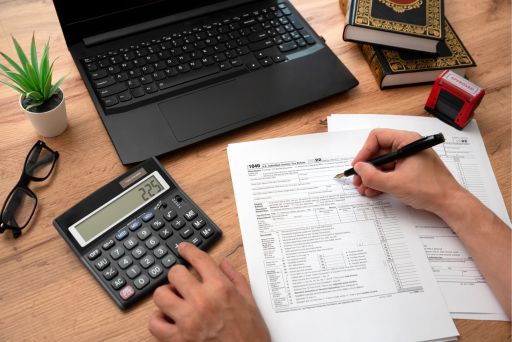
What is a Federal Tax Lien?
A federal tax lien is used to put a lien on property, or any other assets, as collateral for unpaid back taxes. The Internal Revenue Service (IRS) can issue federal tax liens to secure payment of those unpaid back taxes.
A federal tax lien does not allow the government or the IRS to seize any assets. The government has to issue a tax levy in order to seize any property.
When the IRS places a federal tax lien, they tell all states and creditors that they are placing a lien and they are first in line for any payments. If a federal tax lien is placed against you, it will significantly lower your credit.
You can learn more about how federal tax liens can affect you on the IRS’ website.
Federal Tax Lien Scenario
Doug is a small business owner. He hasn’t paid his personal taxes in five years. The IRS has filed a federal tax lien against Doug to try and get him to pay his back taxes.
The first step the IRS will take will to be to notify Doug’s other creditors; the federal tax lien takes precedence over any other creditors. Then, the IRS will place the federal tax lien against his bank accounts, car, home and against his small business business. Although Doug has paid his business taxes, the IRS can still hold a lien against his small business for payment on his personal taxes . Once the federal tax lien is issued it will also lower Doug’s credit score. This will make it more difficult for Doug to take out any new loans.
Doug have three options in order to have the federal tax lien removed. The first option is to pay off the debt in full. The second option is to get the debt dismissed in bankruptcy court. Finally, debtors can reach a settlement with the IRS to pay or forgive the debt.
Doug is the sole proprietor of his small business so it is considered an asset that the IRS can go after when trying to get him to pay his back taxes. If Doug decides to choose to declare bankruptcy the IRS will asses if his business to determine if it has any value. If they determine that there is value in the business, then it can be taken. However, if there isn’t value in the business then the IRS won’t go after it and Doug could continue to run his business after the bankruptcy.
In order to make sure he can still run his business, Doug chose to pay his back taxes. The IRS will release the lien 30 days after the debt it paid in full.

Frequently Asked Questions
1. What is a federal tax lien?
A federal tax lien is a legal claim made by the Internal Revenue Service (IRS) on your property and assets due to unpaid back taxes. This lien serves as collateral to ensure payment of the owed taxes. While it does not allow the IRS to seize property, it establishes the government’s priority over other creditors for payment.
2. How does a federal tax lien affect my credit score?
When the IRS places a federal tax lien against you, it notifies all states and creditors, establishing its priority for any payments. This action significantly lowers your credit score, making it more challenging to secure new loans or credit. The lien remains on your credit report until the debt is fully paid or resolved.
3. Can the IRS seize my assets with a federal tax lien?
No, a federal tax lien itself does not grant the IRS the authority to seize your assets. For asset seizure, the IRS must issue a tax levy. A lien simply secures the government’s interest in your property as collateral for the unpaid taxes.
4. How can I get a federal tax lien removed?
There are three primary ways to remove a federal tax lien:
- Pay the Debt in Full: Once the debt is fully paid, the IRS will release the lien within 30 days.
- Bankruptcy: In some cases, debts may be discharged through bankruptcy, potentially removing the lien.
- Settlement: You can reach a settlement with the IRS, such as an Offer in Compromise, to pay a reduced amount and have the lien removed.
5. Can a federal tax lien affect my small business?
Yes, if you are a sole proprietor, your small business is considered a personal asset and can be subject to a federal tax lien for your personal unpaid taxes. The IRS can place a lien on your business assets, affecting your ability to operate. In the case of bankruptcy, if the IRS determines your business has value, it may seize it. However, if the business lacks significant value, you might be able to continue operating post-bankruptcy.

